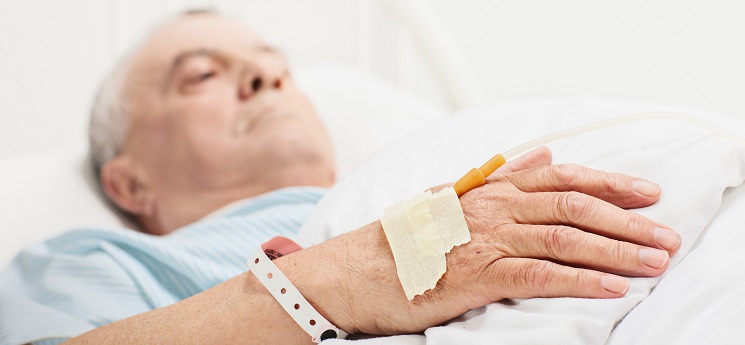Major surgery greatly increases the chance of heart complications for high-risk patients, according to new research.
“One in five high-risk patients undergoing major non-cardiac surgery will develop one or more heart complications within a year,” reports Science Daily. The research, published in European Heart Journal – Acute Cardiovascular Care by the European Society of Cardiology (ESC), has startled experts.
“Our study reveals a greater likelihood of having heart problems or dying after non-cardiac surgery than has been recognised to date,” said study author Dr Christian Puelacher of the University of Basel in Switzerland.
“Patients are also at risk for a longer period than was previously thought.”
The study involved 2265 patients who were either 65 to 85 years old or 45 to 64 years old who had cardiovascular disease, peripheral artery disease or had experienced a stroke in the past. On average, patients were aged 73, and 43 per cent were women. They were monitored for a year after surgery for heart attacks, heart failure, heart rhythm disorders and cardiovascular disease-related death.
Dr Puelacher said this was one of the first studies to monitor patients for asymptomatic heart attacks after surgery.
“These patients were at greater risk of subsequent events,” he said. “One-third of patients who had an asymptomatic heart attack went on to have at least one more heart complication, compared to just 10 per cent of those who did not have an asymptomatic heart attack.”
Dr Puelacher suggests that measuring levels of the protein troponin during hospitalisation could help identify and avoid further complications and deaths. When the heart muscle is injured, troponin is elevated in the blood.
Nearly one in seven patients (15 per cent) had a heart issue within 30 days. The 30-day incidence of heart complications was highest in patients who had thoracic surgery (22 per cent), followed by vascular surgery (21 per cent) and trauma surgery (19 per cent). One in five patients (21 per cent) had at least one heart complication within a year of surgery.
“Our results indicate that this high-risk patient group has an elevated likelihood of having an adverse cardiac event for three to five months after major surgery,” he said.
Dr Puelacher’s team had previously discovered that older adults commonly suffered damage to heart cells during surgery – even in non-heart-related surgery – which can significantly raise their risk of dying from the procedure.
Their research uncovered perioperative myocardial injury (PMI), a subtle form of heart damage that can happen during or soon after any type of surgery.
Older patients, and those who already had heart disease, were found to be at increased risk.
PMI was missed because most affected patients showed no chest pain or other symptoms.
One in seven high-risk patients developed PMI after a non-cardiac surgery, they reported in 2017.
“This suggests we’ve underestimated the number of myocardial (heart) injuries that occur during non-cardiac surgery,” said Dr Alistair Phillips, co-chair of the surgeons’ section leadership council for the American College of Cardiology.
That work led to increased screening for PMI, by monitoring troponin levels.
However, it did not change the difficulty of making the decision to have elective surgery.
Common non-cardiac surgeries performed in older people, such as a hip replacement or gallbladder removal, also put physical stress on the heart.
“Anaesthesia and the operation itself can cause changes in heart rate and blood pressure as well as unmask previously undiagnosed heart disease,” says cardiologist Dr Brendan Everett, assistant professor of medicine at Harvard Medical School.
“A major surgery like a hip replacement may also involve some blood loss, as well as shifting of fluid into and out of the part of the body affected by the operation. Both can stress the entire cardiovascular system.
“I’ll ask careful questions about how much daily exercise a person does and use the physical exam to check for any heart murmurs that might indicate a heart valve problem,” Dr Everett said.
Science Daily reports that of the 300 million-plus surgeries performed worldwide every year, nearly three-quarters of patients who died after surgery were never admitted to critical care, suggesting that their risk was unrecognised.
Do you know the questions to ask if you’re facing surgery?
If you enjoy our content, don’t keep it to yourself. Share our free eNews with your friends and encourage them to sign up.
Related articles:
https://www.yourlifechoices.com.au/health/your-health/heart-attack-risk-rising
https://www.yourlifechoices.com.au/health/your-health/heart-palpitations-explained
https://www.yourlifechoices.com.au/health/news/heart-failure-likely-for-8-in-10

